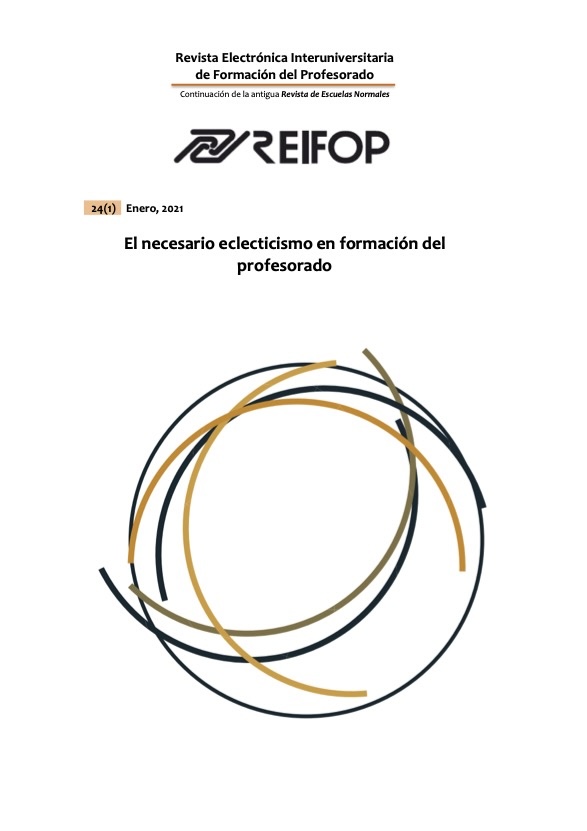La inteligencia espiritual como estrategia para afrontar de manera constructiva el estrés laboral docente
Abstract
Teachers´ activity is frequently threatened by the precarious conditions in which this practice is carried out. Teachers are exposed to different psychosocial risks that affect their performance and well-being. The present pre-test post-test study with a control group aims to examine the incidence of a intervention program based on the development of spiritual intelligence (SI) about the levels of stress reported by a group of 115 teachers from official educational institutions in Sincelejo (Sucre, Colombia). Within this intervention program, SI is understood as the ability to build a healthy (or adaptive) system of spiritual values or beliefs and adopt it as a lifestyle. SI encompasses three fundamental dimensions: cognitive (spiritual knowledge), affective (spiritual experience) and behavioral (contingency). Descriptive and inferential analysis were performed (intragroup and intergroup) and the variations of each institution were compared with their relationship to the teachers´ perception of the levels of stress before and after the intervention (measurements carried out on 2018 - 2019). The results show that teachers' perception of the levels of stress changed significantly from a high to a low risk factor.
Downloads
-
Abstract5014
-
PDF (Español (España))3502
References
Anandan, K. & Paul, G. (2017). A study on spiritual intelligence among higher secondary students in relation to their social adjustment. Journal of Research in Humanities and Social Science, 5(3), 38-42. ISSN (Online): 2321-9467. Recuperado de http://www.questjournals.org/jrhss/papers/vol5-issue3/F533842.pdf
Arias, R. y Lemos, V. (2015). Una aproximación teórica y empírica al constructo de inteligencia espiritual. Revista Enfoques, XXVII (1), 79-102. Recuperado de http://uap.edu.ar/wp-content/uploads/2015/11/2015-1-Lemos-Arias.pdf
Bhoslay, R. (2015). A study of effectiveness of spiritual intelligence enhancement programme for trainee teachers. International Conference on Contemporary Issues in Education, 1-8. Dubai - United Arab Emirates. Recuperado de http://iccie-conference.net/2015/pdf/951%20-%20Raamaa%20%20Bhoslay.pdf
Carranco, S. y Pando, M. (2019). Metanálisis de los artículos sobre estrés laboral docente en el período 2013 – 2017. Revista Científica Mundo de la Investigación y el Conocimiento, 3 (1), 522-554.
Díaz, D.L. (2011). Estrés laboral y sus factores de riesgo psicosocial. Revista CES Salud Pública, 2(1), 80-84. ISSN 2145-9932. Recuperado de http://revistas.ces.edu.co/index.php/ces_salud_publica/article/download/1451/914
Gardner, H. (1998). Inteligencias múltiples.Teoría en la práctica. México: Editorial Paidós.
Gutiérrez, M. (2015). Estado del arte de la teoría de la inteligencia espiritual (Tesis de maestría). Universidad Icesi, Santiago de Cali, Colombia.
Hernández, R., Fernández, C. y Baptista, P. (2014). Metodología de la investigación (6a. ed.). México: McGraw-Hill.
Ministerio de Educación Nacional. (2016). Política integral de excelencia docente & bienestar Laboral: Calidad de Vida en la escuela. Recuperado de http://www.sednortedesantander.gov.co/sitio/images/documentos/bienestarlaboral/Politica%20Excelencia%20Docente%20y%20Bienestar%20Laboral.pdf
Ministerio de la Protección Social. (2010). Batería de instrumentos para la evaluación de factores de riesgo psicosocial. Recuperado de https://portal.posipedia.co/wp-content/uploads/2019/08/bateria-instrumento-evaluacion-factores-riesgo-psicosocial.pdf
Ministerio del Trabajo-Colombia. (2016). Prácticas de trabajo saludable para educadores. Protocolo de intervención de factores psicosociales en el sector educativo. Recuperado de http://fondoriesgoslaborales.gov.co/wp-content/uploads/2018/09/07-Protocolo-intervencion-sector-educativo.pdf
Oramas, A. (2013). Estrés laboral y síndrome de burnout en docentes cubanos de enseñanza primaria (Tesis doctoral). Escuela Nacional de Salud Pública: La Habana-Cuba:
Otzen, T. y Manterola, C. (2017). Técnicas de muestreo sobre una población a Estudio. Int. J. Morphol., 35(1), 227-232. Recuperado de http://www.scielo.cl/pdf/ijmorphol/v35n1/art37.pdf
Parihuamán-Aniceto, M. (2017). Nivel de estrés de los docentes de las instituciones educativas de Villa Vicús y kilómetro 50, distrito de Chulucanas - Morropón - Piura (Tesis de maestría). Universidad de Piura, Piura, Perú.
Singh, MP. & Sinha, J. (2013). Impact of spiritual intelligence on quality of life. International Journal of Scientific and Research Publications, 3(5), 1-5. ISSN 2250-3153. Recuperado de http://www.ijsrp.org/research-paper-0513/ijsrp-p1705.pdf
Subaldo, L. (2012). Las repercusiones del desempeño docente en la satisfacción y desgaste del profesorado (Tesis de maestría). Universidad de Valencia, Valencia, España.
Torralba, F. (2010). Inteligencia espiritual. Barcelona, España: Plataforma Actual.
Zohar, D. y Marshall, I. (2001). Inteligencia espiritual. Madrid, España: Plaza y Janés.
Los artículos que se publican en esta revista están sujetos a los siguientes términos:
1. El Departamento de Métodos de Investigación y Diagnóstico en Educación de la Universidad de Murcia (España), junto con el Servicio de Publicaciones de la Universitdad de Murcia (Editum) son los editores de la revista REIFOP y conserva los derechos patrimoniales (copyright) de los artículos publicados, permitiendo la reutilización de las mismos bajo la licencia de uso indicada en el punto 2.
2. Las obras se publican en la edición electrónica de la revista bajo una licencia Creative Commons Reconocimiento-NoComercial-SinObraDerivada 3.0 España (texto legal). Se pueden copiar, usar, difundir, transmitir y exponer públicamente, siempre que: i) se cite la autoría y la fuente original de su publicación (revista, editores y URL de la obra); ii) no se usen para fines comerciales; iii) se mencione la existencia y especificaciones de esta licencia de uso.
3. Condiciones de auto-archivo. Se permite y se anima a los autores a difundir electrónicamente las versiones pre-print (versión antes de ser evaluada) y/o post-print (versión evaluada y aceptada para su publicación) de sus obras antes de su publicación, ya que favorece su circulación y difusión más temprana y con ello un posible aumento en su citación y alcance entre la comunidad académica. Color RoMEO: verde.















